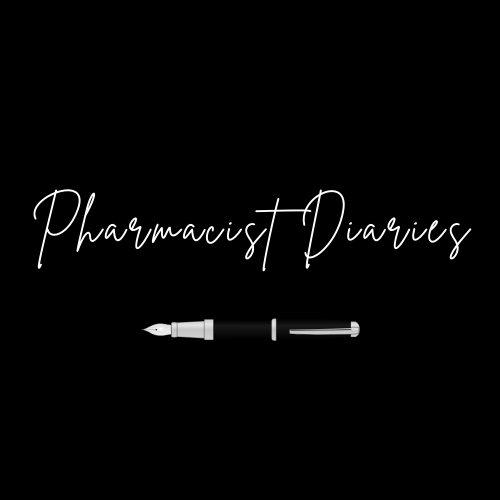178 Leya Luhar (Part II)
In the second episode of our special three-part series with Leya Luhar, we tackle one of the most frequently asked questions I receive in my DMs: "Should I choose pharmacy or medicine?" Instead of just sharing my perspective, I brought on Leya - a medical student and entrepreneur - to offer insights from someone currently experiencing medical school firsthand.
This episode provides an honest, in-depth comparison between these two healthcare pathways, helping A-level students and career changers make informed decisions about their future.
The Fundamental Differences Between Pharmacists and Doctors
What Pharmacists Do: Pharmacists are the true medication experts, with deep knowledge of drug indications, dosages, side effects, interactions, pharmacology, and pharmacokinetics. We play crucial roles in drug development, clinical trials, and evidence-based medicine implementation. Most people recognize pharmacists working in community settings, hospitals, and increasingly in GP practices across the UK. The pharmacist's primary focus is ensuring medications are used safely and effectively.
What Doctors Do: Doctors, as Leya explains, focus on the broader clinical picture. Their responsibilities center around diagnosing conditions and creating comprehensive management plans. Unlike pharmacists, doctors may perform procedures and surgeries depending on their specialty. Their training emphasizes decision-making across the entire patient journey, from initial symptoms to long-term management.
Training Pathways: A Striking Contrast
Pharmacy Education:
4-year MPharm degree (undergraduate)
1-year paid training placement
Registration exam to qualify
For hospital pharmacy: Often complete a clinical diploma
Can easily switch specialties without formal retraining
Prescribing qualification traditionally done post-registration (changing in 2026)
Medical Education:
5-6 year undergraduate degree (longer if intercalated)
2-year foundation training with rotating placements
Specialty training ranging from 3 years (GP) to 7 years (some specialties)
Two main training routes: "run-through" programs or core/specialty training
Highly competitive specialty applications (up to 27:1 for some specialties)
Very difficult to change specialties once training pathway chosen
Salary Expectations
Pharmacy:
Training year: £20,000-£25,000
Newly qualified community pharmacist: ~£40,000
Hospital pharmacy: NHS banding system (Band 6 initially, progressing to Band 7 and 8)
US pharmacists: $100,000+ but with significant student debt ($150,000-$200,000)
Medicine:
Foundation Year 1: ~£35,000
Foundation Year 2: Increases incrementally
Specialty training: ~£50,000
Consultant level: £105,000-£140,000
US physicians: Average around $350,000 annually
Work-Life Balance and Lifestyle Considerations
Pharmacy:
Hospital roles typically include on-calls and weekend work, especially early career
Community pharmacy and GP practice roles offer more structured, predictable hours
Significant flexibility to switch between sectors and specialties
Growing remote/work-from-home opportunities
Can work part-time or locum for better work-life balance
Medicine:
Generally more challenging work-life balance, especially during training
Mandatory night shifts and on-calls during foundation years
Significant time needed for portfolio-building for competitive specialties
Varies greatly between specialties (psychiatry and GP offer better balance)
Less flexibility to modify career path once established
Traditionally improves at consultant level, but varies by specialty
Emerging Roles and Future Opportunities
Pharmacy:
Digital health and electronic prescribing systems
Remote clinical services and telehealth
Pharmacogenomics and personalised medicine
Split clinical/academic roles
Entrepreneurship and health tech
Medicine:
Technology consultancy for health tech companies
Opportunities in finance sector
Clinical entrepreneurship
Medical education and academia
Remote and digital healthcare innovations
Real-World Collaboration
One of the most valuable insights from our conversation was understanding how these professions actually complement each other in practice. While medical doctors take the lead on diagnosis and overall treatment plans, pharmacists provide crucial expertise on medication management, safety, and optimisation. Together, they form a powerful team focused on delivering the best possible patient care.
Key Advice for Students
The most important takeaway from our discussion is to "fit your job into your life, not your life into your job." When making career decisions, consider:
Do you prefer structured hours or are you comfortable with on-calls?
How important is career flexibility to you?
What type of patient interaction do you prefer?
Are you looking for a more specialized or broader clinical role?
What lifestyle factors matter most to you (family time, travel opportunities, etc.)?
Looking Ahead
Stay tuned for Part 3 of our conversation with Leya where we'll discuss the significant changes coming to pharmacy education in 2026, including all pharmacy students qualifying as prescribers and what this means for the evolving relationship between pharmacists and doctors.
JOIN MY NEWSLETTER COMMUNITY:
This isn't your typical pharmacy newsletter - it's a weekly mentoring session delivered straight to your inbox, packed with actionable insights for ambitious pharmacy students. Each week, I share:
Building multiple income streams while maintaining clinical practice
Time management secrets and productivity hacks I swear by ⚡
Systems and strategies that keep it all running smoothly ⚙️
Personal reflections on growth, failure, and resilience
Behind-the-scenes looks at podcast production and brand building
If you are ready to think differently about your future in pharmacy, sign up 👉 HERE!
PARTNERSHIPS and DISCOUNTS:
The Naked Pharmacy is a brand I LOVE and use daily. They are offering my podcast listeners a 20% discount on all their products. Use discount code PD20 at checkout to receive the offer.
https://www.thenakedpharmacy.com/
🚀 Check out our Amazon storefront dedicated to podcasting gear! We will keep adding/reviewing the list but there’s a selection of microphones, audio interfaces, and more to help you elevate your podcasting game. Explore Our Storefront Here
CONNECT WITH LEYA:
Linkedin: Leya Luhar
Website: https://www.oscetoolbox.com/
Instagram: @OSCEtoolbox
TikTok: @OSCEtoolbox
OTHER LINKS:
The music from this series has been created by a pharmacy student! BPSA’s president, Emeka Onwudiwe, is a talented student and incredible entrepreneur. I am so proud to share his music on my podcast. Go and check the music production company and the word that they do: Inplus Music
Follow me on My Website, YouTube, Instagram, Facebook, LinkedIn, and/or Twitter. Feel free to subscribe to the podcast on your favourite podcast platform so you can be notified when a new episode is released or leave a review on apple podcasts. If you have any suggestions for guests you want me to talk to or if you’d like to come on yourself, please feel free to contact me via social media, or email at info@pharmacistdiaries.com.

